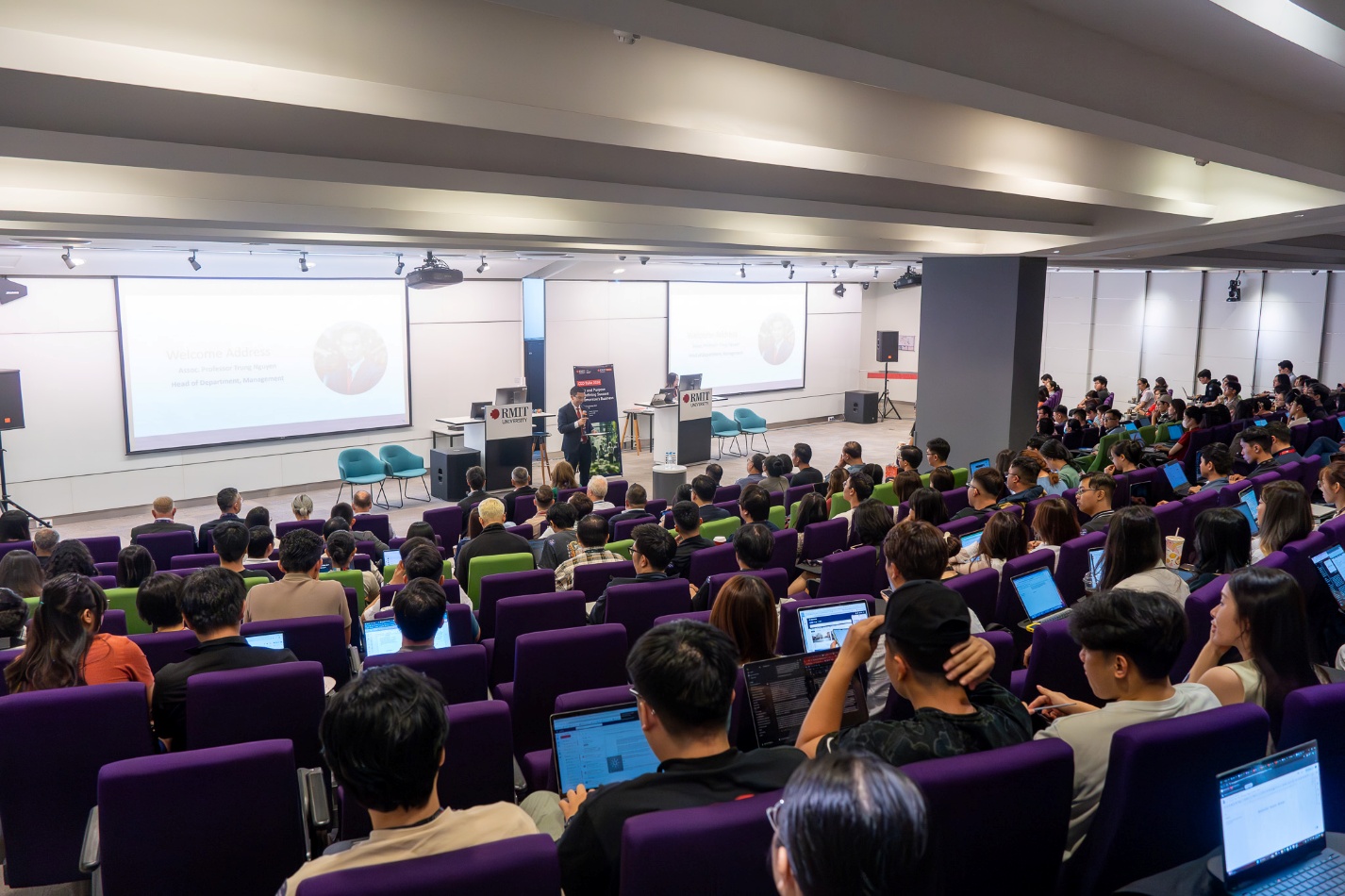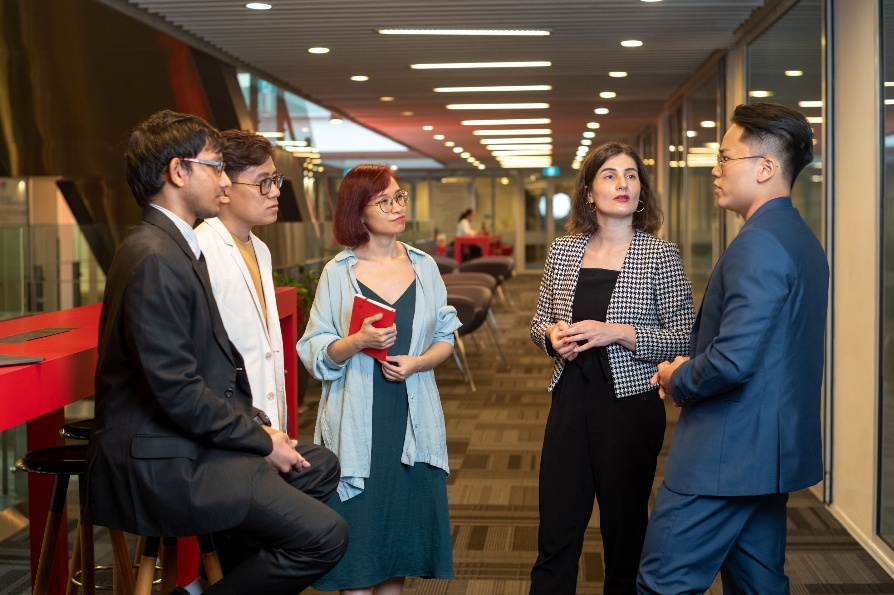The seminar, hosted by RMIT University Vietnam's School of Business & Management, focuses on "Implementing AI Transformation for Businesses in Southeast Asia." The program aims to share practical experience, helping domestic and regional businesses leverage AI for a sustainable competitive advantage.
According to the organizers, artificial intelligence (AI) is being increasingly applied in Vietnam and other countries in the region, but the gap between strategy and execution remains a significant hurdle.
From a technical term, AI has quickly become a strategic priority for businesses. A March 2024 survey by McKinsey & Company revealed that over 72% of businesses are using AI solutions, a faster adoption rate than even the early internet. However, high adoption rates don't guarantee long-term success, as many organizations face difficulties in scaling applications.
 |
The CEO Talks 2024 event organized by RMIT University. Photo: RMIT |
The CEO Talks 2024 event organized by RMIT University. Photo: RMIT
Global experts emphasize the role of leadership in planning and implementation. This strategy needs to combine technological innovation, a solid operational foundation, and a long-term vision.
"The real challenge is not building a technology strategy, but the ability to coordinate resources, processes, and the power structure of the organization," said Associate Professor Burkhard Schrage, Acting Head of Management Discipline, RMIT University Vietnam, School of Business & Management.
Technically, risks such as "AI hallucinations," where AI generates misinformation, are raising concerns, especially in fields like healthcare. Simultaneously, AI's impact on the labor market remains complex, with some positions diminishing. Many new jobs are also emerging, dependent on economic and technological shifts.
For the young workforce, AI offers the potential to compensate for limited experience through collaboration with smart tools, acting as "virtual colleagues." This trend points towards a work environment where AI not only processes information but also performs tasks, becoming part of the team.
Dr. Santiago Velasquez, Senior Acting Program Manager for the Master of Business Administration (MBA) and Master of International Business (MIB) programs at RMIT Vietnam, also emphasized that the human element determines successful AI implementation.
"Businesses need to prepare the skills of current and future employees to adapt to an AI-integrated work environment," he said.
CEO Talks 2025 is expected to feature three international speakers leading businesses at the forefront of AI application:
Fabian Singer, Managing Director of Siemens Healthineers Vietnam, will share his experience applying AI in diagnostics and personalized healthcare. Hoang Tri Mai, General Director of Airbus Vietnam, Laos, and Cambodia, will present how to harness AI's power to enhance flight safety and sustainable development. Warrick Cleine, Chairman and CEO of KPMG Vietnam and Cambodia, will offer a multifaceted perspective on AI's impact on professional services.
In addition to presentations, the event will discuss key topics such as responsible large-scale AI deployment, workforce preparation, and transforming AI into a long-term growth driver rather than a disruptor.
 |
The event creates opportunities for exchange and connection between academia and businesses. Illustration: RMIT |
The event creates opportunities for exchange and connection between academia and businesses. Illustration: RMIT
The organizers hope that CEO Talks 2025 will become a forum for business leaders, policymakers, experts, and students to exchange experiences and shape the future of AI application in Vietnam and Southeast Asia.
Nhat Le
Readers can learn more and register at: https://apps.rmit.edu.vn/r/CEOTalks2025-vn.












